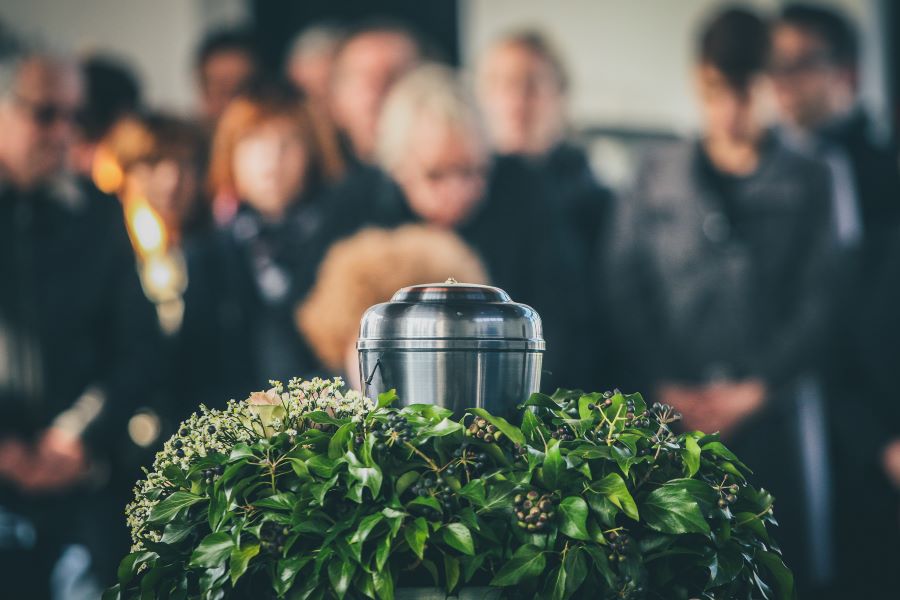Cremation Services in the UK: A Considerate Guide to Available Options and Planning Ahead
Cremation is a personal and often emotional decision. In the UK, a variety of service options are available to suit different preferences and needs — from simple arrangements to more personalised ceremonies. This article provides an overview of how cremation works, what families can expect, and the different types of services offered. Whether planning ahead or making arrangements for a loved one, understanding your options can help ensure a respectful and meaningful choice.

What are the types of cremation services available in the UK?
In the UK, cremation services typically fall into four main categories: direct, standard, premium, and luxury. Each type offers varying levels of service and personalisation:
-
Direct Cremation: This is the simplest and most cost-effective option. It involves the cremation of the deceased without a formal ceremony or mourners present. The ashes are then returned to the family, who may choose to hold a separate memorial service later.
-
Standard Cremation: This includes a basic funeral service at the crematorium, usually lasting about 30 minutes. It allows for a small gathering of mourners and may include music and readings.
-
Premium Cremation: This option offers more personalisation, including a longer service time, higher-quality coffin, and additional features such as flower arrangements or video tributes.
-
Luxury Cremation: The most comprehensive package, luxury cremation services provide extensive customisation, premium facilities, and additional services such as limousines for family transport and catering for a wake.
How does the cremation process work?
The cremation process begins with the careful identification of the deceased. The body is then placed in a cremation-friendly coffin and moved to the crematorium. Before the cremation, any medical devices or prosthetics that could be harmful during the process are removed.
The coffin is then placed in the cremation chamber, where it is subjected to intense heat (usually between 800-1000°C) for about 90 minutes. This reduces the body to bone fragments, which are then processed into ashes. These ashes are returned to the family in an urn or scatter tube, typically within a few days after the cremation.
What can families expect during the cremation process?
For families opting for a service before the cremation, they can expect to gather at the crematorium’s chapel. Here, they may have the opportunity to view the coffin, listen to chosen music, and participate in readings or eulogies. The service usually lasts about 30 minutes, though this can be extended in premium or luxury packages.
After the service, the coffin is moved to the cremation chamber. Families are not present for the actual cremation process. They will be informed when the ashes are ready for collection, which is usually within a few days.
For direct cremations, there is no service at the crematorium. Families will be notified when the ashes are ready for collection or when they have been scattered, depending on the arrangements made.
How to choose a cremation service that reflects personal values?
Selecting a cremation service that aligns with personal values involves considering several factors:
-
Environmental impact: Some may prefer direct cremation for its minimal environmental footprint, while others might choose services that offer eco-friendly urns or local scattering options.
-
Personalisation: Consider how much customisation is desired in the service. This could range from a simple, no-frills approach to an elaborate celebration of life.
-
Religious or cultural requirements: Ensure the chosen service can accommodate any specific religious or cultural practices.
-
Budget: While cost shouldn’t be the only factor, it’s important to choose a service that fits within financial means.
-
Family involvement: Consider whether a service with family present is important, or if a direct cremation followed by a separate memorial would be preferable.
What unique considerations exist for cremation services in the UK?
In the UK, cremation services are subject to strict regulations to ensure dignity and respect for the deceased. One unique aspect is the requirement for two doctors to sign cremation forms, confirming the cause of death and that no further investigation is necessary.
Another consideration is the option for witness cremations, where family members can view the beginning of the cremation process. This is not commonly requested but can be important for some cultural or religious practices.
Additionally, the UK offers various options for the final resting place of ashes, including dedicated gardens of remembrance at crematoria, woodland burial sites, or the possibility of scattering ashes in meaningful locations (with the landowner’s permission).
What are the typical costs associated with cremation services in the UK?
The cost of cremation services in the UK can vary significantly depending on the type of service chosen and the location. Here’s a general overview of what you might expect:
| Service Type | Estimated Cost Range | Key Features |
|---|---|---|
| Direct Cremation | £1,000 - £1,500 | No ceremony, basic coffin, return of ashes |
| Standard Cremation | £3,000 - £4,500 | Basic service, standard coffin, some personalisation |
| Premium Cremation | £4,500 - £6,000 | Longer service, higher quality coffin, more personalisation |
| Luxury Cremation | £6,000+ | Extensive customisation, premium facilities, additional services |
Prices, rates, or cost estimates mentioned in this article are based on the latest available information but may change over time. Independent research is advised before making financial decisions.
It’s worth noting that these costs can be significantly reduced by planning ahead and considering pre-paid funeral plans, which allow you to lock in today’s prices for future services.
In conclusion, cremation services in the UK offer a range of options to suit different preferences, budgets, and personal values. By understanding the various types of services available, the cremation process, and what to expect, you can make an informed decision that honours your loved one or plan ahead for your own arrangements. Remember that while cost is an important factor, the most meaningful choice is one that aligns with personal wishes and provides comfort to those left behind.




